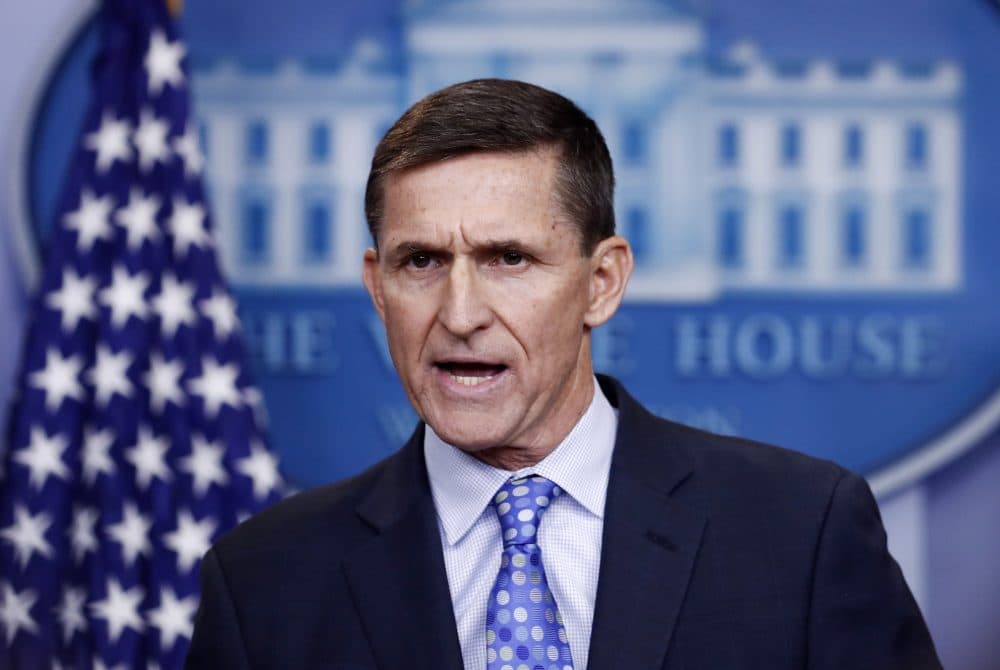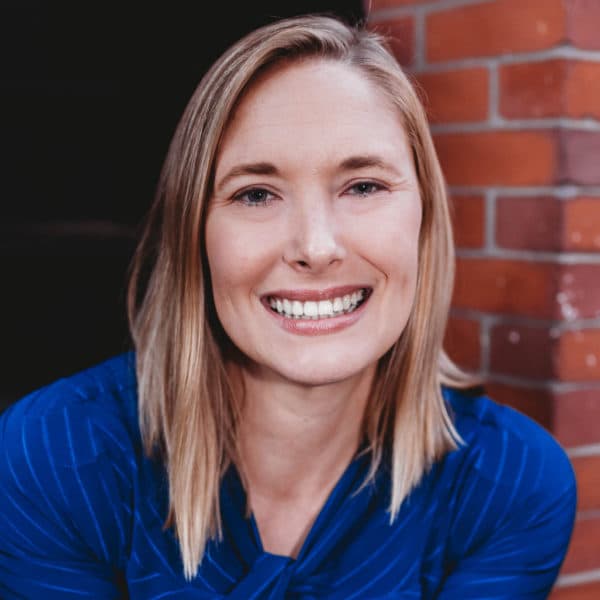Advertisement
The Latest On The Russia Investigation, Consumer Financial Protection Bureau

This week on Freak Out And Carry On, Ron Suskind and Heather Cox Richardson talk with Brian Klaas, fellow at the London School of Economics and author of "The Despot's Apprentice: Donald Trump's Attack on Democracy." They discussed recent news in the Mueller investigation, including the possible cooperation of former National Security Adviser Michael Flynn. They also look at the ongoing leadership crisis at the Consumer Financial Protection Bureau and compare it to the leadership crisis at the Department of War under President Andrew Johnson.
Excerpts
Ron Suskind: So, on Thanksgiving, I was finishing up my turkey, passing the cranberry sauce, and I get news on my phone that there is new evidence that Michael Flynn, Trump's former national security adviser, is probably working with special counselor Bob Mueller. This is a huge turn. Lots of news is hitting us at once but this is in a different category. There's quite a bit more. Mueller is investigating senior aide and son-in-law Jared Kushner and his interactions with foreign leaders during the presidential transition. Mueller is closing in. This is a model of prosecution that is familiar to anyone who has watched prosecutors do their job. But the key actor, Michael Flynn, I mean he is at the very top of this pyramid. There's really no one above him except Trump. He is the senior man in the campaign and he was the national security adviser to start the administration. He's the guy who had the most contacts leading into Trump's emergence as a candidate with the Russians. And suddenly he could be the man who turns. If in fact, and it's not absolutely nailed down yet, we may have just moved to a latter chapter of what is a successful prosecution. And I guess the question then becomes are we moving finally now, as we approach Christmas, to the constitutional crisis that many, many people have been predicting almost since the first minutes of this Trump administration.
Heather Cox Richardson: Well, Ron, I think that you and I are actually on the same page on this one. The way I look at what's going on right now is that I do think we are approaching a crisis. The things that has really jumped out at me in this last week is that in the past what has been happening with the Russia investigation has almost seemed to live on its own off on the side. But right now, this week, there were lots of things that suggested that he was very nervous about the Mueller investigation. But at the same time, beginning this week, we got a lot of other indications that Trump's fears about Russia are so extreme that he's coming down on American democracy in particularly pointed ways that suggests to me that this is the crisis in which Americans really are going to have to choose soon between either democracy or the kind of Trump vision of the government that most of us think is not an American vision. This quite frankly terrifies me and I have not been the freak-out person on this show yet but this is my week to freak out.
Brian Klaas: [The Flynn new is] a major development because there's a few things that are different about Flynn from the other people who have been involved in the investigation. One that's really important is that Flynn became part of Trump's administration. So he was his national security adviser for 24 days in January. The other thing that's really important here is that the allegations against Flynn are extremely serious and extremely illegal. So the Wall Street Journal has reported that one of the allegations is that Flynn was an unregistered foreign agent--which we know that was true, he definitely was an unregistered foreign agent in the time running up to being national security adviser. That is in itself a problem. He also was allegedly in communication with the Turkish government trying to arrange a quid pro quo in which he may receive up to $15 million to arrange the kidnapping of Fethullah Gülen, the arch nemesis of President Erdogan in Turkey, a despot in Turkey. That accusation has extreme criminal liability associated with it. But also the more general accusations against Flynn, relate to his work with the Flynn Intel Group, his private consulting firm, in which he basically sold influence and his son was involved in that. So now you have a situation in which Mueller is able to create criminal liability and exposure not just for Flynn but also for somebody very important to Flynn. And that means that he may be in a situation where he has to choose between himself his son and Donald Trump.
Heather Cox Richardson: Most of the things that are coming out of the Trump administration would be administration-defining events for any other moment in American history. But here sometimes we're hit with three and four of them in a day. But that raises another question for me: when we say things like the national security adviser was a paid foreign agent and that the Russians were actively hacking hacking our democracy, that includes, at this point, the president, members of the White House including the president's family, probably the vice president, members of Congress. I mean, at some point this seems to me to be so enormous an attack on American democracy it's simply impossible for people to get their heads around. It seems like a tin foil hat conspiracy like the sex ring out of the bottom the pizza parlor. Is this a legitimate concern about the way we're reacting to this?
Brian Klaas: Things that used to shock us don't shock us anymore. I think most people probably remember the first time Trump called the news fake or the first time he called them the enemy. People are outraged when Ivanka Trump was appointed as a senior adviser even though she's unqualified or when he started to demonize minorities or when he tried to say that we should jail his opponents or when he pardoned Joe Arpaio. The list goes on and on and on. And one of the things that I've thought about a lot is how liberal democracy allows citizens the ability to not pay attention to politics, which is totally different from authoritarian regimes where the regime wants you to always be thinking about it. That's what we've lost. You can't go a day without thinking about politics. But the cost of that is that the guardrails of democracy require us to be shocked when they're violated. And now it's a daily occurrence. So you know the democratic norms that are sort of the glue that keep the system intact and operating, those are being violated on a daily basis. It means that they're losing their meaning and I'm extremely worried about the long term damage, not just because of what Trump is doing but of how he's corroding the system. And how about a third of Americans are not just OK with this but are cheering this type of authoritarian-esque behavior and expecting it of the leader.
Ron Suskind: Precisely what we've all been watching over the last year is a numbness, a shock after shock that is drawing less and less response from people. I mean look we live contextualized by a moment in this era, the moment we're sitting in and all of a sudden that moment has us moving well down a path. If you just carry forward these progressions that we have actually seen over this past year-- where people are not shocked. They are not outraged. In fact you need more and more to shock them. I don't see right now a kind of moment in which wise men and women come together across party lines, put aside the powerful will to power that frankly drives most of us, in favor of a restoration of the sort.
The views and opinions expressed in this podcast are solely those of the participants and do not in any way reflect the views of WBUR management or its employees.
